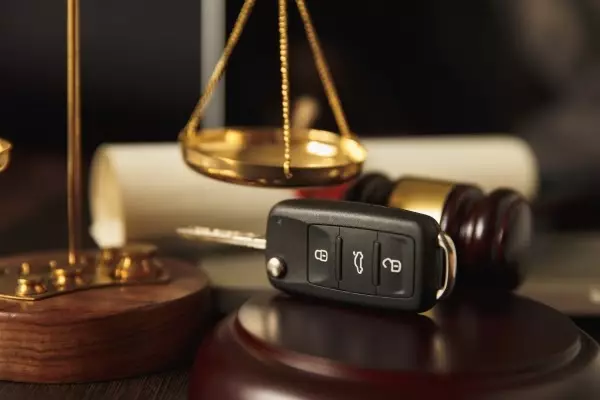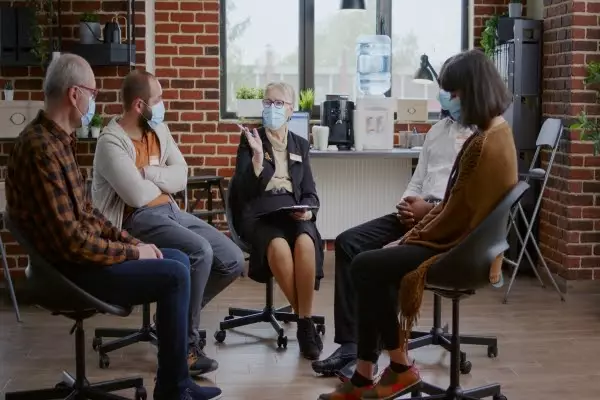
If you’ve recently been charged with a DUI and went through a DUI evaluation, it may be challenging to think about what to do next. The process of staying sober after a DUI evaluation can be overwhelming, especially if you have some addiction in your life already. A DUI can cause significant legal trouble for someone who has an addiction, but it doesn’t have to.
Here are some tips for staying sober after a DUI evaluation to help you avoid legal troubles in the future.
What Is A DUI Evaluation?
A DUI evaluation is a court-mandated process after someone has been arrested for driving under the influence. A DUI may involve drug abuse, alcohol abuse, or both.
The evaluation is conducted by a professional who will ask questions about your drug and alcohol use, as well as your criminal history.
You’ll be asked to complete an online questionnaire before the evaluation. The evaluation takes about 45 to 55 minutes and includes an assessment of the person’s alcohol intake, mental status, and brief medical history.
Knowing The Process
If you’ve been charged with a DUI and have gone through a DUI evaluation, you may not know what your next steps are. Here is a basic overview of the process.
If you’ve been arrested for drunk driving, the police will take you to the station to process your arrest. From there, you’ll likely be booked, given a court date, and possibly be given a bond amount to pay before being released. At this point, the court will schedule your first appearance for a hearing.
At this appearance, the prosecutor will formally notify you of the charges against you, as well as ask you to enter a plea. If you plead not guilty, you’ll be given a court date and asked to prepare for trial or your attorney may engage with the prosecutor to arrange a plea agreement instead of going to trial.
If you do plead guilty or are found guilty at trial, your license may be suspended, and you may be ordered to participate in a substance abuse program. If you successfully complete the program, you can then put in an application with your state’s motor vehicle bureau to have your license reinstated.
How To Stay Sober After A DUI Evaluation
A DUI can cause major legal problems for someone who has an addiction, but it doesn’t have to. There are ways to stay sober after a DUI evaluation without professional help.
-
The first step to staying sober is going to court on your scheduled court date to go through the hearing process.
-
Attend self-help groups like Alcoholics Anonymous or Narcotics Anonymous meetings.
-
Find other people in your life who will be there for you when times get tough.
-
Stay away from situations where drugs or alcohol are present; even if it is just social situations where these substances are available in small amounts, avoid them at all costs so that you can remain sober.
-
Avoid any substances that could impair your judgment or interfere with your ability to think clearly. This includes products containing small amounts of alcohol and some prescription drugs.

Addiction And The Law
If you have an alcohol addiction and were charged with DUI after a recent DUI evaluation, you could be facing some serious legal trouble.
After a DUI evaluation, the first step to keeping sober is to get clean. It is possible to make better decisions once you are sober.
If you’re caught driving while intoxicated on a DUI charge, even your first offense, it can lead to jail time and other legal consequences. Even if you complete mandatory classes from the court system and go through 12 AA meetings, it can still lead to jail time for someone with an addiction who has committed a DUI offense.

Tips For Staying Sober
If you’re struggling with addiction and recently went through a DUI evaluation, it can be hard to know what to do next. If you were charged with a DUI, the legal repercussions are much more than most people realize.
A DUI can cause significant problems, including imprisonment and fines, for someone who has an addiction. However, it doesn’t have to be that way if you take the time to prepare for your future. Here are some healthy habits for staying sober after the evaluation process:
Exercise Regularly
Physical activity is an integral part of staying sober. It elevates neurotransmitters in your brain to help your mood and keep you from feeling stressed or anxious.
Eat Healthy
Eating a well-balanced diet that includes protein, whole grains, and plenty of fruits and vegetables will help you get the proper nutrients to stay healthy.
Keep Track Of Your Sobriety
Documenting your days without alcohol will help keep you accountable and on track.

Seek Professional Help
Professional treatment providers can provide support in many different ways. Seeking out treatment will ensure that you stay on track with recovery.
Find A Sober Support Group
There are many different types of sober support groups available. Finding one that fits your needs can provide valuable support and accountability.
Family therapy sessions can be highly beneficial if you have a spouse or children. It will allow everyone to share their thoughts and feelings about the situation and help create a plan for the future.
Create A Sobriety Plan
A sobriety plan is a vital tool for recovery. This plan will help you stay on track and make sure you're taking the necessary steps to stay sober. relapse commonly occurs within the first few months of sobriety, so it's important to be prepared.
Get Plenty Of Sleep
Lack of sleep can lead to cravings and make it difficult to resist temptation. Make sure you're getting enough rest each night.

Take Time For Yourself
Relaxation techniques such as yoga, meditation, and breathing exercises can help relieve stress and anxiety. Try to relax as much as possible each day. Your mental health is just as important as your physical health when it comes to staying sober.
Treatment Programs Available If You're Struggling To Stay Sober
Addiction Treatment
If you're struggling with addiction, it's vital to seek professional help. Addiction treatment centers can provide the support you need to get and stay sober. The treatment process will include detoxification, counseling, and aftercare planning.
Rehab Programs
Inpatient rehab programs offer a more intensive level of care than outpatient programs. Inpatient rehab provides around-the-clock care and supervision in a safe and sober environment. This type of treatment is often recommended for those with a more severe addiction.
Outpatient programs
Outpatient programs offer less intensive treatment than inpatient programs. Outpatient treatment allows you to live at home and continue working or going to school while receiving treatment. This program is a good option for those who cannot take time off from work or school to attend an inpatient program.
Reasons Why You Might Want To Stay Sober
You Could Lose Your Job
If you are in a position where your job could be at risk because of alcohol or substance abuse , it’s important to stay sober.
You Want To Set A Good Example For Others
If you have kids or are in a position of influence, it’s essential to set a good example by staying sober.
Avoid Loss of Basic Freedoms
In some cases, a DUI charge can lead to mandatory time served in jail, even for a first offense.
You Want To Improve Your Health
Alcohol abuse takes a toll on your body, and sobriety can help improve your overall health and well-being.
Consequences Of Not Staying Sober After A DUI Evaluation
A DUI can have major consequences on your life, which is why it’s so essential to stay sober after a DUI evaluation. You may experience legal ramifications due to the DUI, but there are other consequences as well. For example, you could lose your ability to drive for a certain amount of time, or you could be required to attend alcohol treatment classes.
It can be challenging to stay sober after a DUI evaluation if you already have an addiction, which should be considered before deciding what kind of defense you want to use in court.
So, how do you stay sober after a DUI? There are many ways that people successfully stay sober, and the key is finding what works for them. Some people find it helpful to take medications or avoid alcohol completely, while others use different methods.
Conclusion
It’s important to remember that support is available if you struggle to stay sober after a DUI evaluation. Many treatment programs are available, both inpatient and outpatient, that can help you establish a strong recovery pattern and achieve long-term sobriety.
With the proper treatment and support, you can get on the path to recovery and lead a healthier life.



Add new comment